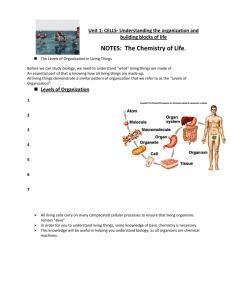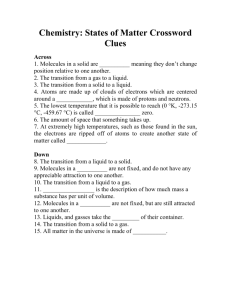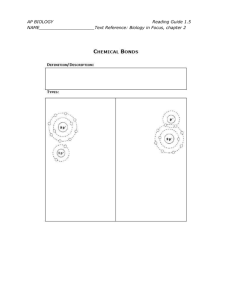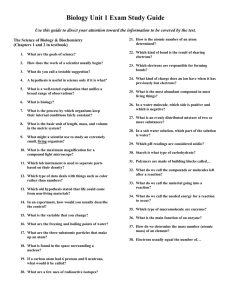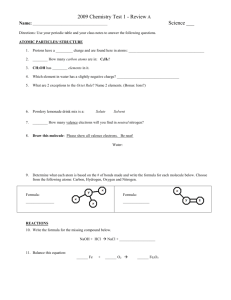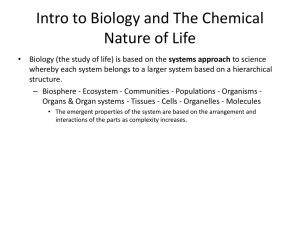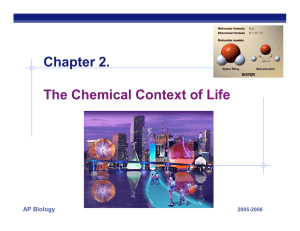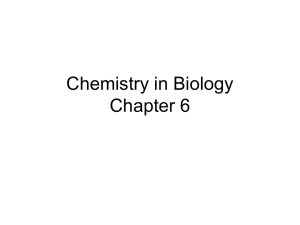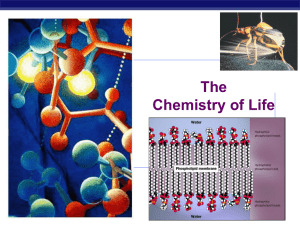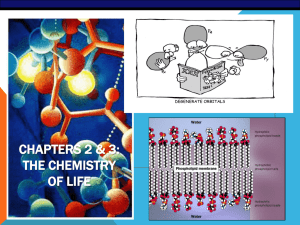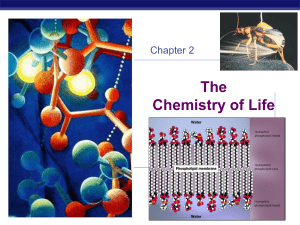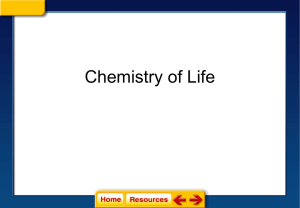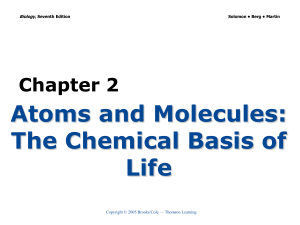Properties of Water
advertisement
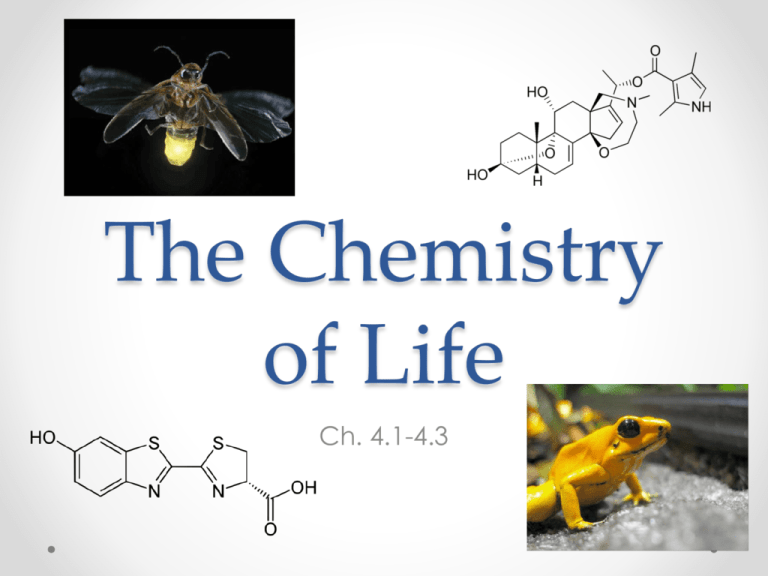
The Chemistry of Life Ch. 4.1-4.3 Recall: Levels of Organization Biology Depends on Chemistry • In our biosphere, everything is made of atoms • Through the interaction of chemicals we can better understand our biosphere • Basic unit of matter • Protons Atoms o (+) charge o In nucleus • Neutrons o (0) charge o In nucleus • Electrons o (-) charge o Around nucleus at varying energy levels Molecules • 2 or more atoms held together by chemical bonds • Importance to biology: macromolecules make up cells and cellular components Chemical Bonds: Ionic • Electrons transferred from one atom to another • Ex: NaCl (salt) • Importance to biology: many salts are made this way (homeostatic balance) Chemical Bonds: Covalent • Electrons are shared between atoms o Ex: CO2 • Importance to biology: carbon compounds, water Chemical Bonds: Hydrogen • Weak bond formed from by the attraction of two electronegative molecules o Slightly positive, slightly negative ends • Importance to biology: critical to water’s properties, holds DNA together Chemical Reactions • Synthesis o Make a compound o Ex: Photosynthesis • Decomposition o Break down a compound o Ex: Cellular Respiration • Both reactions important to biology: metabolism
